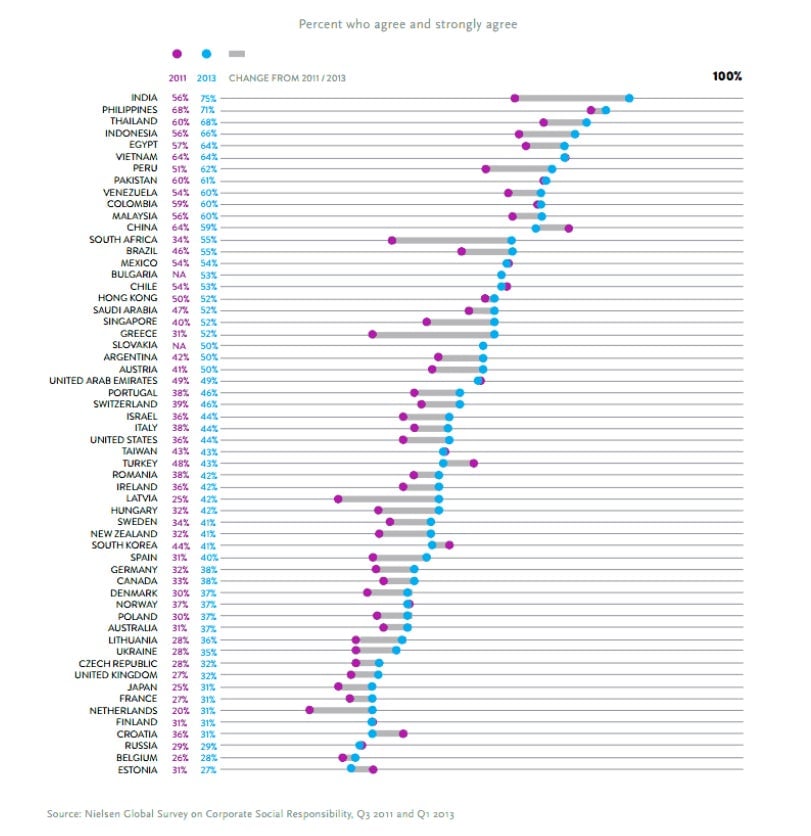Focus corporate social responsibility on Asian customers; they’ll pay for it
Corporate social responsibility might be wasted in the West.

Corporate social responsibility might be wasted in the West.
That’s the message of Nielsen’s August ”Consumers Who Care” report. It finds that if corporate spending targets the Asia-Pacific region, there’s a higher likelihood of having impact. And if Europe is a company’s focus, it might be time to reconsider.
Nielsen, the global information and measurement company, surveyed 29,000 internet users in 58 countries to gauge their willingness to reward companies’ socially-conscious actions. People in the Asia-Pacific region were more likely than any other respondents (Europe, North and South America) to pay more for products from a socially responsible company.
The graphic below from the report shows respondents’ willingness to spend more on products from socially responsible companies. Only 36% of all European respondents said they would pay more for products from socially aware companies. Yet in India, the Philippines, Thailand and Indonesia, more than two-thirds of respondents said they’d pay a little more. Indians were most willing, at 75%.

So why is India more proactive than countries such as the US, the UK, France and Germany (at least in theory) about rewarding the good deeds of businesses?
Culture partly comes into play. So does legislation.
In fact, India’s legislature has a bill that mandates CSR spending aimed at promoting environmental management and improving working conditions. After years of corporate disregard, both locals and the government are holding businesses more accountable. With pollution literally stifling other parts of Asia, it’s safe to say a business that is socially or environmentally aware is a breath of fresh air … literally.
Nielsen results, meanwhile, underscore cynicism in Europe toward business. Compared to people from other major economies, citizens of the European Union are more likely to think business has a negative impact on society, according to a report by the European Commission (pdf). This further corresponds with the larger culture of political and governmental skepticism in Europe, which came to the academic consciousness when the French and Dutch voters rejected the EU Constitutional Treaty. Some scholars even coined the term “Euroskepticism” for the phenomenon (pdf).
But saying you’re willing to pay more and actually doing it are two different things. The survey showed fewer respondents had actually paid more for products from socially responsible firms. But even then, it was the Asia-Pacific countries who were most willing.